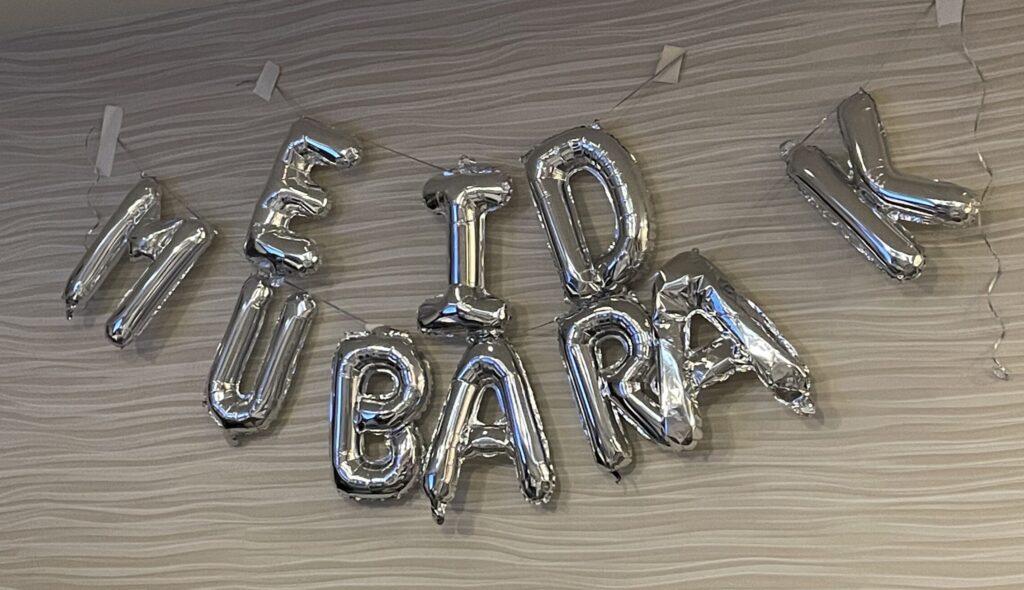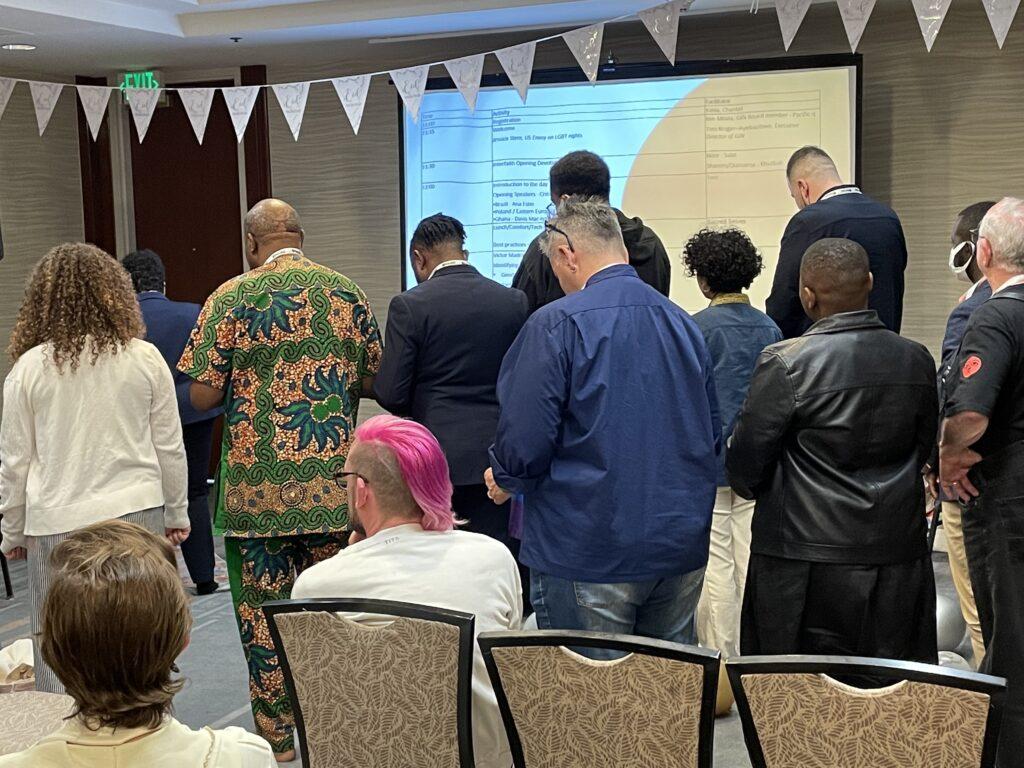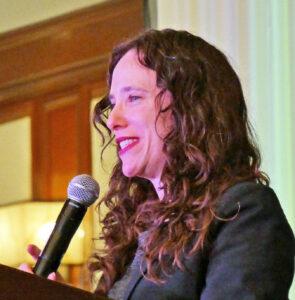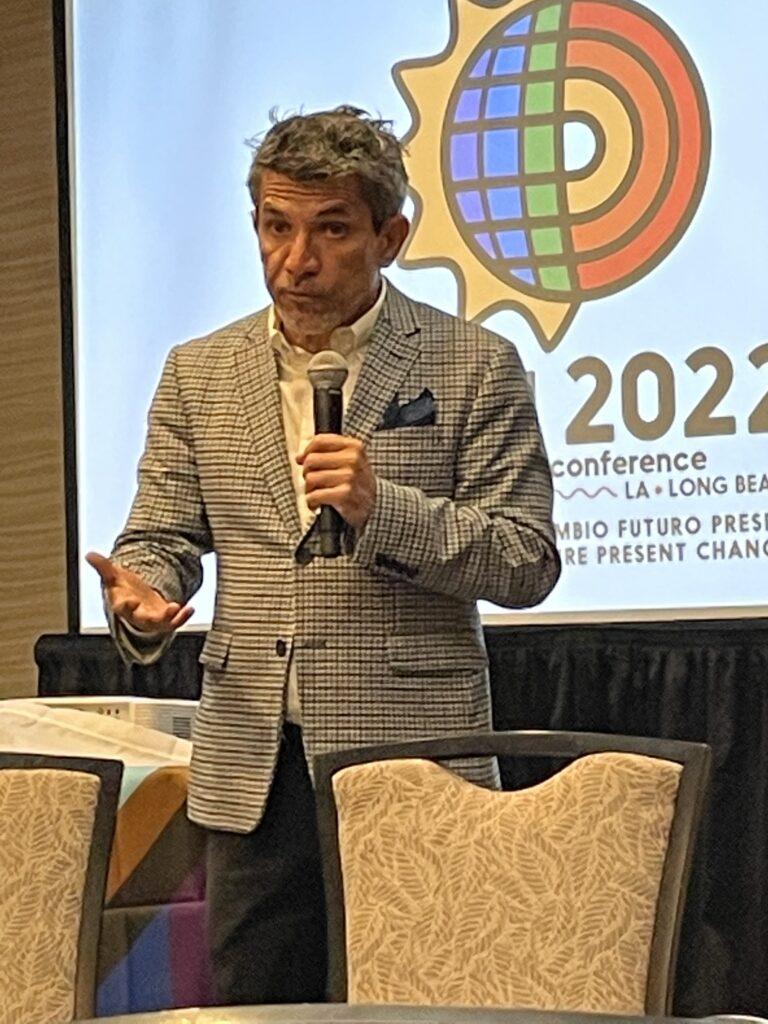Glimpses of the work of LGBTQ+ people of faith
Colin Stewart is a 45-year journalism veteran living in Southern…
Yesterday provided glimpses of the work of LGBTQ+ people of faith seeking an inclusive and accepting society.

The Global Interfaith Network organized an interfaith pre-conference, held Monday, May 2, in Long Beach, California, at the start of the world conference of ILGA, the International Lesbian, Gay, Bisexual, Trans and Intersex Association.

.

“A second coming out”
Jessica Stern, U.S. special envoy for LGBTQI+ rights, welcomed the dozens of participants. She recalled that, in the past, gatherings of gay people of faith were smaller.
Gay friends who were believers told her that publicly acknowledging their faith was essentially a “second coming out’, which was even harder than their first one. As queer people of faith, they were not accepted by their LGBTQ community and at the same time were not accepted by their faith community.
“Faith is used to justify violence against LGBTI people. That never made sense to me,” she said.
Everyone has a right to their beliefs, Stern said, but that does not justify manifesting belief in a manner that violates the rights of others.
The Russia-Ukraine War
The Russian invasion of Ukraine is a direct outgrowth of conservative Christianity, said Russian/Polish activist Misza Cherniak, appearing via an audio link.
He referred to the position of Kirill, the patriarch of the Russian Orthodox Church, in favor of the war because, he alleges, Ukraine must be protected again gay pride and other Western influences. Cherniak said the war in Ukraine is an attempt to protect Russia against the “gay agenda”.
Unless we become stronger as allies and make visible to the whole world how faith and queerness go together, we will not win this culture war and there will be more wars like the one in Ukraine, Cherniak said.
The Interfaith Diversity Network of West Africa
Davis Mac-Iyalla, founder and chief executive of the Interfaith Diversity Network of West Africa, discussed Ghana and his group’s opposition to that country’s extremely anti-LGBTQ bill currently in Parliament.
Ghana had been a “live and let live country”, he said, but it has been changed into a more homophobic society by anti-gay advocates’ promotion of the anti-LGBTQ bill. When Parliament invited comments on it, Mac-Iyalla and IDNOWA responded – and received some support in the position they took.
After Mac-Iyalla appeared before the parliamentary committee considering the bill, newspaper coverage of his remarks were a contrast to Ghanaian media’s frequently homophobic sensationalism.
‘They quoted me accurately,” he said.
Parents of LGBTQI people came up to him and said, “Thank you!”, he said.
We the people of faith should stop running away from this issue, he said.
United Nations

So many stories of violence, so much courage, so much resilience. That was the summary by Victor Madrigal-Borloz of his work as UN Independent Expert on Protection against violence and discrimination based on sexual orientation and gender identity.
In that role, he has issued reports on the practices of so-called “conversion therapy” (He called for an end to it.); on de-pathologization of sexual orientation and gender identity; and decriminalization.
An upcoming report, he said, will be on the relationship between human rights and the right to practice religion.
“Is there really a conflict between the right to live free of violence based on sexual orientation and gender identity and the right to freedom of religion? ” he asked. “We say no.”




